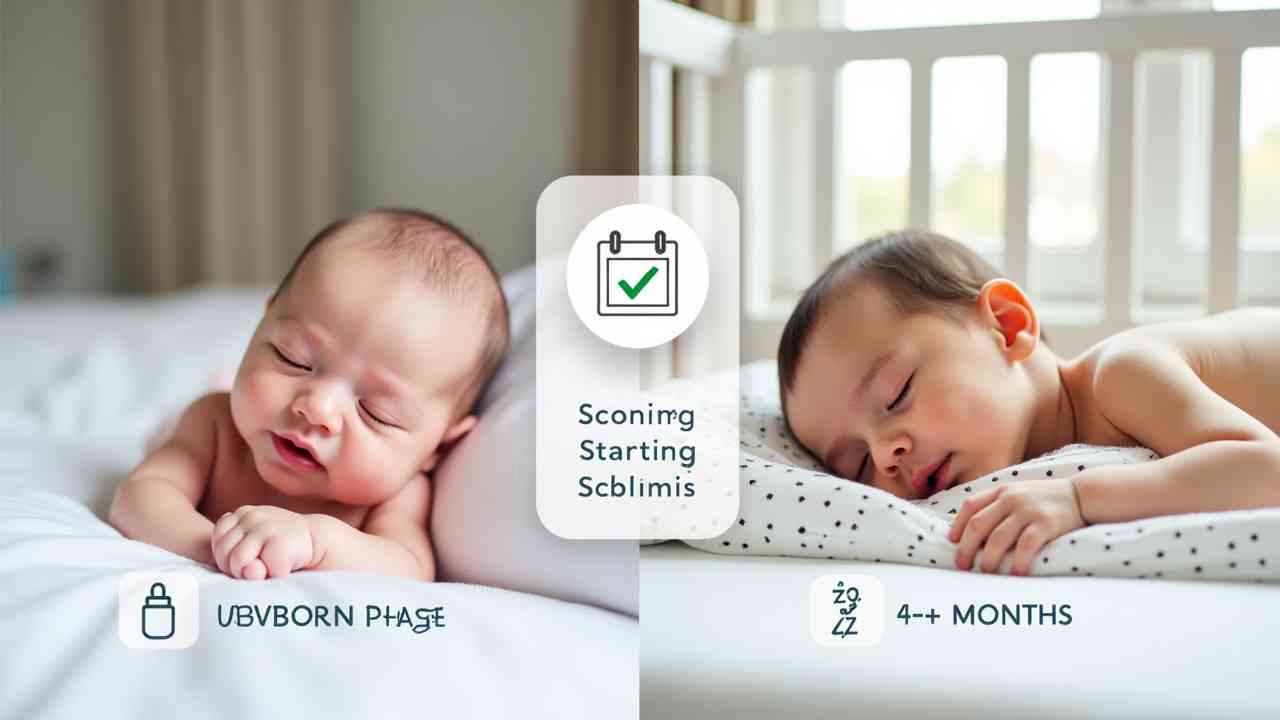
💤 When to Start Sleep Training? A Parent's Guide (The 4-6 Month Window)
💤 When is the Best Time to Start Sleep Training? (A Parent's Guide) 💤
You have survived the chaotic newborn phase, but your baby's sleep is still unpredictable. You are exhausted from countless night wakings and are wondering if there is a better way. This is when the big question arises for many parents: when can you start sleep training?
The answer is crucial. Starting at the right time is the key to a successful and less tearful experience for everyone. It is about working with your baby's developmental readiness, not against it. Sleep training is not about withholding love; it is about teaching your baby a valuable life skill.
This guide will provide a clear, science-backed timeline. We will explain the ideal age to start and the signs of readiness to look for. Let's find the perfect time for your family to get more rest. ✅
🤔 What is the Ideal Age Window to Start? (The 4-6 Month Sweet Spot)
For most babies, the ideal time to start sleep training is between 4 and 6 months of age. This is the "sweet spot" recommended by most pediatricians and sleep experts for several important developmental reasons.
Why is this the best time?
- Sleep Cycles Have Matured: Around 4 months, your baby has gone through the infamous 4-month sleep regression. This means their sleep has permanently changed from a newborn pattern to a more adult-like pattern of sleep cycles. They are now capable of learning to connect these cycles on their own.
- They Can Self-Soothe: By this age, most babies are developing the ability to self-soothe. They can find their hands to suck on for comfort.
- Night Feedings May No Longer Be Necessary: Many healthy, full-term babies no longer need to eat overnight for nutritional reasons by 4-6 months. However, you must get the all-clear from your pediatrician before dropping any night feeds.
🚫 Why Shouldn't You Start Sleep Training a Newborn?
It is very important not to start formal sleep training with a newborn (0-3 months). Their sleep patterns are still very disorganized. They have tiny stomachs and a genuine biological need to eat every few hours, day and night.
The first three months are often called the "fourth trimester." This is a time for bonding and responding to your baby's every need. Their cries are for comfort and food. Their brains are not yet developed enough to learn the skill of self-soothing. Trying to train them will be ineffective and stressful for both of you.
✅ What Are the Signs That Your Baby (and You!) Are Ready?
Age is the first factor, but there are other signs of readiness to look for. Here is a simple checklist:
- Your baby is at least 4 months old and is a healthy weight.
- You have the green light from your pediatrician to start, and they have approved your plan for night feeds.
- Your baby is showing signs of self-soothing, like sucking on their hands.
- You can distinguish between a real hunger cry and a comfort-seeking cry.
- YOU are ready. This is the most important factor. You and any other caregivers must be on the same page and emotionally ready to be 100% consistent with a chosen method.
The darker, cooler evenings of the autumn season here in Bursa are a perfect time to commit to a consistent indoor routine. It is a great time to start your sleep training journey. By choosing the right time, you are setting your family up for success. Peaceful nights are ahead! 😴